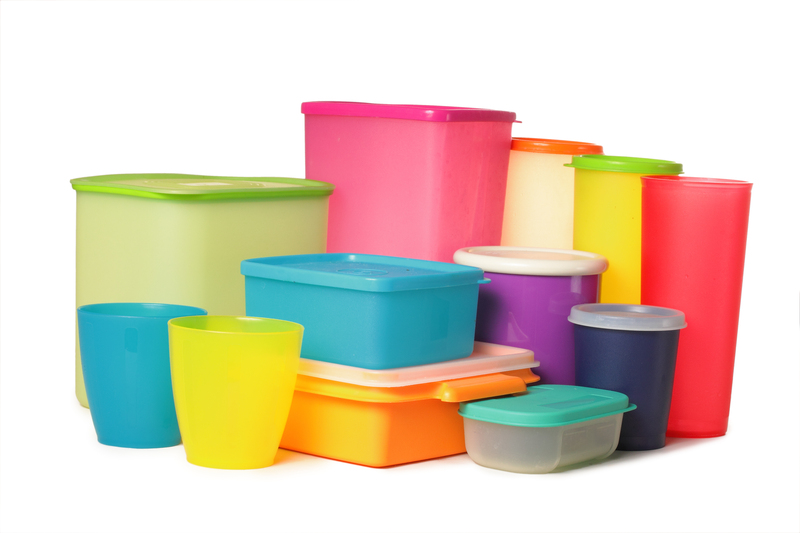Keep More in Your Pocket When Disposing Bulky Waste Items
Disposing of large waste items--think old sofas, mattresses, home appliances, or heaps of broken furniture--can be a daunting (and often expensive) endeavor. If you want to save money on bulky waste disposal and minimize headaches while being environmentally conscious, there are several approaches to consider. This comprehensive guide will show you different strategies to keep more in your pocket when disposing bulky waste items, offering practical and actionable tips suitable for homeowners, renters, landlords, and property managers alike.

Understanding Bulky Waste: What Qualifies?
Before delving into cost-effective disposal options, it's helpful to define what counts as bulky waste. Bulk waste items generally include things that are too big for your regular trash bin or weekly curbside pickup. These can include:
- Furniture (sofas, beds, tables, chairs, bookcases, etc.)
- Large appliances (fridges, washing machines, ovens, AC units)
- Mattresses and box springs
- Carpets, rugs, and large textiles
- Yard debris (branches, stumps, large lawn equipment)
- Construction and renovation debris
Most municipalities have strict rules about how these items can be discarded and many charge additional fees for special pickups. That's why it's financially savvy to educate yourself on your options.
Why Bulky Waste Disposal Costs Add Up
Many people experience sticker shock when they call the city or a junk removal service for a bulky item pickup quote. Some of the factors driving up the cost include:
- Weight and Volume: Larger, heavier items cost more to transport and dispose of safely.
- Labor: Heavy lifting often requires special crews and equipment.
- Processing: Some items (like mattresses and electronics) require special handling or recycling compliance.
- Municipal Fees: Cities may charge additional fees for specialized disposal.
So, how do you dispose of bulky waste items without breaking the bank? Read on for top tips!
Strategies to Keep More in Your Pocket When Disposing Bulky Waste Items
1. Reuse, Repurpose or Donate
The greenest and often cheapest option is to reuse or donate large unwanted items before considering disposal. Local charities, thrift shops, shelters, and nonprofits frequently accept:
- Gently used sofas, tables, and chairs
- Appliances in good working condition
- Mattresses with minimal wear (check restrictions)
- Building materials, fixtures, or tools
*Some organizations will even pick items up for free*, saving you time and disposal costs. Popular options include Habitat for Humanity ReStores, Goodwill, Salvation Army, and local churches.
Pro tip: Always call ahead to confirm donation policies, as they may not accept certain items (like heavily soiled mattresses or broken appliances).
2. Sell Your Unwanted Items
You might be able to turn your junk into cash by listing large unwanted items on:
- Craigslist
- Facebook Marketplace
- Local buy/sell groups
- eBay (for specialty items)
*If an item is priced low enough--or listed for free--many people are happy to pick it up themselves.* This eliminates disposal fees and hauling costs, and might even leave you with some extra money in your pocket.
3. Schedule Your Free Municipal Bulky Item Pickup
Many cities and towns offer *one or two free bulky item pickups* per year. These programs are often underutilized or overlooked. Check your local waste management department's website for eligibility and scheduling details. Rules typically apply to:
- Number of items or volume limits per pickup
- Types of items accepted (e.g., appliances may require special handling)
- Advance scheduling requirements
*Missing your assigned pickup date may result in extra charges*, so plan accordingly.
4. Share or Split Costs with Neighbors
If municipal services aren't available, consider collaborating with neighbors. Many junk removal companies or dumpster rental services base their charges on container size or total weight. By sharing a bin or a truck, everyone pays less per item--and you can help each other with heavy lifting.
5. DIY Hauling to Local Landfills or Transfer Stations
Hauling your bulky waste directly to your local landfill or transfer station can save a significant amount compared to hiring a junk removal service. Most facilities charge by weight or per item; call ahead to check costs and requirements (e.g., proof of residency, cash vs. card payments).
*Pro tip:* If you don't have a suitable vehicle, consider renting a pickup truck or trailer for a day. Some home improvement stores have affordable rental programs.
6. Recycle Whenever Possible
Many types of bulky waste can be recycled for less (or even for free), including:
- Scrap metal (old appliances, lawn mowers, bed frames, etc.)
- Electronics
- Mattresses (special recycling centers exist in many cities)
- Large cardboard and wood materials
Check local listings for *scrap yards* or *appliance recyclers*--some may even pay you for certain items by weight.
7. Avoid Illegal Dumping--It's Costly!
Dumping large waste items on public or private property is illegal, environmentally damaging, and can result in heavy fines, legal action, and clean-up fees. *Even if you see others dumping items secretly, don't risk it*--the costs far outweigh any minor savings.
8. Small Business or Contractor? Consider Bulk Disposal Discounts
If you regularly generate large-volume waste (landlords cleaning apartments, contractors on demolition jobs), ask local disposal companies about commercial or bulk discounts. Many firms reward repeat customers or volume jobs with better rates.
Tips to Save More on Bulky Waste Disposal
- Group items together: Consolidate bulky waste into one batch where possible to avoid multiple pickup charges.
- Disassemble large items: Break down furniture, remove doors from old appliances, or compact materials. This can reduce space, weight, and overall cost.
- Be organized: Keep clear records of what's being disposed and separate items that can be recycled or donated to maximize savings.
- Ask about extra charges: Some items (e.g., refrigerators with freon, mattresses) require special treatment and can rack up fees. Always inquire about "hidden" costs.
- Take photos and measurements: This helps when getting accurate quotes from junk removal companies or posting items for resale/donation online.
Bulky Waste Disposal Methods: Finding the Right Solution for Your Needs
Curbside Pickup
- Check if your municipality offers regular "large item" days or special bulk collection services.
- Many cities provide a limited number of free pickups; after that, additional ones often have a fee.
Junk Removal Services
- Especially useful for people who can't lift or move big items themselves.
- These companies do all the heavy lifting, loading, and disposal--convenient but often the most expensive option.
- Price comparisons are a must! Get multiple quotes, and ask about discounts for seniors, veterans, or multiple items.
Dumpster Rentals
- If you are planning a big home cleanout, remodeling, or landscaping project, renting a dumpster can be cost-effective when discarding lots of large waste items.
- Choose the right size dumpster (don't overpay for unused space, but don't get one so small you need extra hauls).
- Ask about prohibited materials to avoid fines.
Self-Haul Options
- Local transfer stations, recycling centers, or landfills accept many bulky items--but rules and prices vary significantly by location.
- Take time to separate items by materials (metal, appliances, electronics, etc.) for better pricing or free drop-off options.
Donation Centers & Nonprofit Pickups
- Free drop-offs or even pickups for items in good shape--perfect for couches, tables, and other furniture.
- Always call ahead to confirm what's currently accepted, as rules change frequently.
Environmental and Financial Benefits of Responsible Bulky Waste Disposal
Properly disposing of large waste keeps neighborhoods cleaner, reduces landfill clutter, and often puts money back in your pocket. When you recycle, repurpose, or donate, less ends up in the landfill--and you might score a tax deduction or small profit. Illegal dumping fines, meanwhile, can run into the thousands. It pays to do it right!
Additionally, using eco-friendly options ensures valuable resources are recovered from old appliances, metal objects, or electronic waste. Many communities list reputable recyclers or maintain "Reuse Networks" online.

Frequently Asked Questions (FAQ) on Bulky Waste Disposal Savings
1. What is usually accepted as bulky waste?
Most areas consider furniture, appliances, mattresses, and similar large household objects to be "bulky waste." Construction or hazardous materials are often excluded.
2. How can I find out if my city offers free bulky waste pickup?
Visit your local city or county waste management website or call their public works office. Many have online calendars, service maps, and FAQs.
3. Is it possible to donate bulky items instead of paying for disposal?
Yes! Many thrift stores, Habitat for Humanity branches, and charity groups will happily take good-condition furniture and appliances. Always call first to check their current needs and donation guidelines.
4. Are there items I cannot dispose of in normal bulk collection?
Hazardous materials, certain electronics, tires, and some construction debris require special handling. Check with your municipality for specific rules.
5. Can I throw large items in a regular dumpster?
Often, no--waste haulers may have rules prohibiting certain items. Always confirm with your provider to avoid unexpected charges or rejected loads.
6. Is hiring a junk removal company expensive?
It can be, especially for heavy or hard-to-move items. Save by combining multiple pieces, asking about group rates, or doing the lifting yourself.
Conclusion: Save Money and the Planet When Disposing Bulky Waste
Disposing of large items doesn't have to be a financial drain. By exploring reuse, resale, donation, recycling, and municipal programs, you can keep more money in your pocket when disposing bulky waste items. Always research your local options, ask for multiple price quotes, and consider joint efforts with neighbors or friends. Responsible disposal is not only kinder to the environment but can help make your community cleaner--and your wallet fatter!
Ready to tackle your large waste items? Start today by reviewing what you have, contacting local services and charities, and choosing the most efficient--and affordable--way to keep your clutter under control.
If you found this article helpful, please share it with friends or neighbors facing a similar bulky waste challenge!
